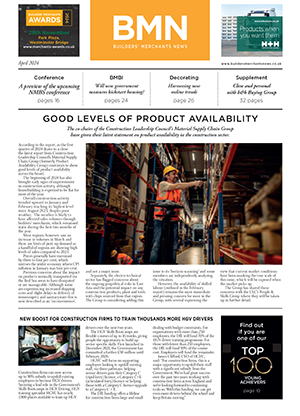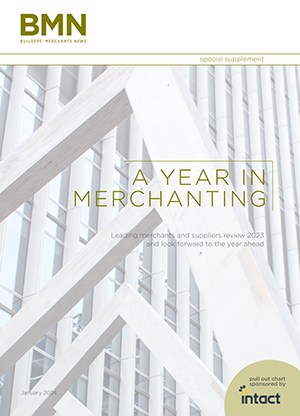In the first of a two-part series, Mark Thornton, marketing director at Maginus, looks at why builders’ merchants need to start taking returns more seriously.
Builders’ merchants and construction suppliers don’t tend to view returns as an opportunity. An inconvenience, an additional cost, something to be avoided – sure. But, as we know, the rise and growth of ecommerce has changed the retail playing field – and now the wholesale playing field too.
But with builders’ merchants increasingly moving their operations online, it’s vital that they follow savvier B2C retailers’ lead and convert returns into a value-add opportunity. However, builders’ suppliers carry even more risk than retailers when it comes to returns, because they buy and sell in bulk – so they need to balance risk and reward extremely carefully. In the online world, if returns sit squarely under the ‘risk’ category, then wholesalers in the construction sector are playing a dangerous game.
A recent conversation with one of our customers really highlights just how costly this game could be. The customer had recently had a batch of products returned to them from one of their customers they supply. Ordinarily the boxes would have been placed in storage for dealing with at a later date, but on this occasion their processes, and our solution, picked up that they had never sold that particular batch of products to the customer. On closer investigation the customer was using multiple suppliers for the same product – and had returned the batch to the wrong supplier. If they hadn’t had the process, or the solutions, in place to properly manage returns, then it would have ended up costing them thousands of pounds in lost revenue and profit.
So, while returns may never sit entirely in the ‘reward’ box, it is certainly clear that they need to be shifted more in that direction – both as a cost prevention measure and as a value add for customers.
Basic principles: making rewards easy to manage
As they shift more of their operations online, builders’ merchants need to ensure that the returns they do have to deal with are a) absolutely necessary and b) easy to manage.
A significant proportion of returns from online sales are due to the customer purchasing the wrong product or not knowing how to use it. Back in the days when merchants depended on product reps, they could afford to have flimsy descriptions in their catalogues because a personal discussion would shore up the gaps. Now, many customers will complete their purchases without ever speaking to the wholesaler in question. It’s therefore critical that they know exactly what they’re purchasing and how to use it. And that means crisp, clear – but deeply informative – online product descriptions, backed up with rich digital content such as instructional videos and downloadable PDFs.
Next, builders’ merchants need to consider the returns process itself – not just ensuring that it’s as efficient as possible – but also ensuring that all relevant information is centralised, so that they have an accurate, unified view of stock control. This means getting rid of silos between different sales channels, so that a batch of returns through one channel is visible to another. Real-time analytics are also a must, ensuring that a new batch of product isn’t ordered five minutes after another batch has just been returned (in a saleable condition) by a customer.
In part two of the series Mr Thornton will look at how builders’ merchants can maximise the value of returns and turn them into a value add service.








